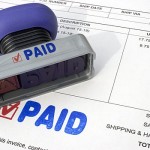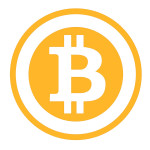 I thought I was finished with my checkbook. But, I have discovered that having a school aged child has brought many required a multitude of off-line payments: class fieldtrips, sports teams, lessons, babysitters. This is coupled with the need to make a payment accepted by most, preferably off-line. Which places me in a position to pay by paper check (!!) as I rarely carry enough cash to make a payment. This is kind of embarrassing given the line of work I am in, so I have tried to look into other options that might be easily adopted by others to move money to a variety of individuals: teachers, parent groups, individual parents, coaches, and small organizations.
I thought I was finished with my checkbook. But, I have discovered that having a school aged child has brought many required a multitude of off-line payments: class fieldtrips, sports teams, lessons, babysitters. This is coupled with the need to make a payment accepted by most, preferably off-line. Which places me in a position to pay by paper check (!!) as I rarely carry enough cash to make a payment. This is kind of embarrassing given the line of work I am in, so I have tried to look into other options that might be easily adopted by others to move money to a variety of individuals: teachers, parent groups, individual parents, coaches, and small organizations.
What options are there right now?
Square Cash: Square allows you to send and receive a payment if you have A) an email address and B) a debit card linked to a bank account. There are no fees to send or receive a payment. Payments are processed within 2 business days. Payments over $250 will require additional identification. *One caveat, if you are a resident of Hawaii, you’re out of luck. You can’t use Square Cash.
Google Wallet via Gmail: Google Wallet’s P2P service requires a gmail address (although you will be required to login with a Google Wallet Account). Google Wallet provides more funding sources (credit/debit/prepaid card/bank account). There is a fee of 2.9% the transaction amount for the sender and the receiver if the funding source is a credit card or a debit card (not if it’s from a bank account). Payments are processed up to 3 business days. You may be required to additional information based on the funding source (SSN, address, all that KYC stuff)
Of course, there’s PayPal (but interestingly, I’ve never been asked to make a payment using PayPal in my parental capacity–why is this?), or prepaid cards to pay a babysitter (not exactly convenient). But, realistically, it seems like none of these newer payment methods will take off unless most people will be required to pay a fee to deposit a check or cash.
![]() California’s Money Transmission Act (Cal Fin Code Section 2000 et seq.) underwent another facelift this year. AB 2209‘s changes were signed by Governor Brown last month, and will go into effect January 1, 2015.
California’s Money Transmission Act (Cal Fin Code Section 2000 et seq.) underwent another facelift this year. AB 2209‘s changes were signed by Governor Brown last month, and will go into effect January 1, 2015.



